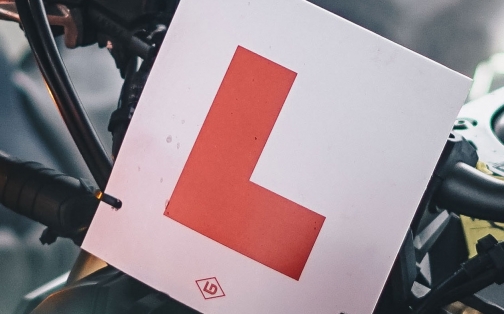
- Home
- News
- Young Drivers
- Should learners be allowed on Motorways?

Should learners be allowed on Motorways?
The head of Road Safety for RoSPA (Kevin Clinton) has openly stated that he believes all learning drivers should be given the option to use motorways.
He was quoted saying, “In terms of learners on motorways, we used to be opposed to it but we’ve been considering it and we wouldn’t oppose it now,”
“We’re not convinced it would make a great difference in terms of peoples’ safety because young drivers don’t tend to crash on motorways. But driving on a motorway is something young drivers can get very anxious about.
“For new drivers, the first few times they’re on a motorway, it can be quite an anxious thing. It would be a good idea from that point of view. But it couldn’t be mandatory. It would have to be allowed, but not required, because there are a lot of people who drive on motorways.”
RoSPA are also in full support of the idea of a minimum learning period for drivers. However, they recognize that there would need to be a considerable amount of administrative work with a new structure to ensure this learning period was adhered to by each student.
Mr Clinton spoke about this, “There’s no point having a minimum learning period of a year if people then start learning in the 11th month. The idea of a log book, for instance, would record the sort of driving that people do in different situations and would help to make sure that the learning period was used in the right way.”
One potential problem with this scheme is that most learner drivers are either in full time education or are just earning minimum wage. Placing a minimum learning time on driving will mean each student will have to invest approximately £1000 into lessons at least.
Therefore, it may be that government funding comes into play to compensate learner drivers with a percentage of what they have to spend. However, some believe this would be a waste of taxpayers’ money.
Mr Clinton had this to say, “I wouldn’t have thought there would be any direct compensation but the indirect compensation in time would be that they would be less likely to crash and therefore they may benefit from reduced insurance,”
“If the cost of learning to drive goes up, then that’s a disadvantage because it makes it harder for people to do what they should do and take lessons. There’s a slight risk that some people won’t get their drivers’ license because of the cost. There’s a bit of a balance to be made there.”
Share this article
Request a Callback
Had an accident that wasn’t your fault? Leave your details and we’ll call you back.
Thank you
Thank you for your request, one of our team members will be in touch shortly.
Find Out MoreExisting Client?
Keep on top of your claim 24/7, 365 days a year with Touchpoint, accessible from any internet-enabled device.



